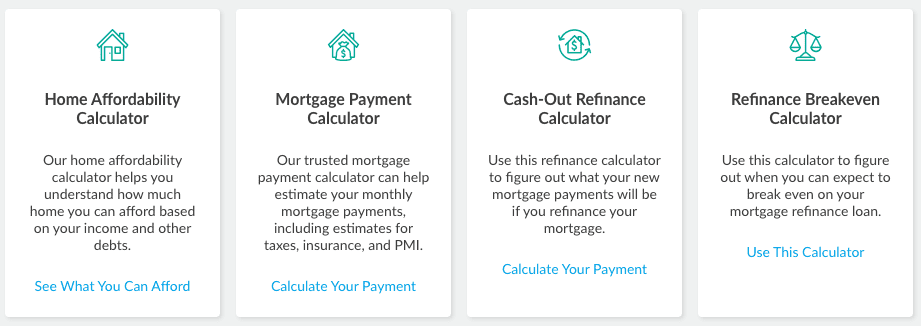One alternative is to merely offer the house to settle the mortgage, and distribute any leftover funds from the sale to the successors as determined by the will or the laws in your state. If you wish to maintain the house, you'll require to deal with the servicer to get the home mortgage moved to you.
If there was a reverse home loan on the home, the loan amount becomes due after the death of the borrower. If the beneficiary to the house desires to retain the property, they'll need to pay back the loan. Otherwise, they can offer the home or turn the deed over to the reverse mortgage servicer to satisfy the debt.
The reverse home mortgage is a popular technique used by older property owners to take benefit of equity in their homes. Open to house owners 62 or older, the reverse home loan can supply them stable house equity income. Additionally, the older a property owner is, the more equity earnings a reverse home mortgage offers in return (how to reverse mortgages work if your house burns).
Reverse home loans are readily available to house owners satisfying age requirements and who totally own or have substantial equity in their houses. The home secures a property owner's reverse home loan. While no payments are made by a homeowner with a reverse home mortgage, the mortgage is due upon death. Estate possessions can pay back a reverse home loan.
Reverse home mortgages are paid back in several different ways. In addition to the estate of the deceased, heirs to the reverse mortgaged house can also pay back the loan completely. Reverse mortgage loan providers typically give successors from three to 12 months to pay back the loan. If neither the heirs nor the estate repay the loan, the lender usually repossesses the house.

As lienholders, lending institutions can seek foreclosure on the homes protecting their loans when they're not repaid. In cases in which a reverse home loan lending institution winds up foreclosing, it will try to sell the house to satisfy its loan. Any proceeds left over after a reverse mortgage loan provider forecloses and offers a house usually go to the deceased debtor's beneficiaries or estate.
The Ultimate Guide To What Do I Do To Check In On Reverse Mortgages
By law, reverse home loans are non-recourse loans, implying lending institutions can't pursue house owner estates or beneficiaries for any who is wesley home mortgage shortages staying after sale (after my second mortgages 6 month grace period then what). Thankfully, numerous reverse home loans fall under the Federal Real estate Administration's House Equity Conversion Home loan program. All FHA-based reverse home mortgages include special mortgage insurance to cover their lending institutions must mortgage shortages result when beneficiaries sell those homes.
Much like a conventional home loan, there are costs connected with getting a reverse home loan, specifically the Home Equity Conversion Home Loan (HECM). These expenses are normally greater than those connected with a conventional home loan. Here are a couple of fees you can expect. The in advance home loan insurance coverage premium (MIP) is paid to the FHA when you close your loan.
If the home costs less than what is due on the loan, this insurance coverage covers the distinction so you will not end up undersea on Visit this link your loan and the loan provider doesn't lose cash on their financial investment. It likewise protects you from losing your loan if your lender goes out of company or can no longer fulfill its obligations for whatever factor.
The expense of the upfront MIP is 2% of the evaluated worth of the home or $726,535 (the FHA's financing limitation), whichever is less. For example, if you own a house that deserves $250,000, your upfront MIP will cost around $5,000. Together with an in advance MIP, there is also an annual MIP that accrues yearly and is paid when the loan comes due.
5% of the loan balance. The home loan origination cost is the quantity of cash a lender charges to stem and process your loan. This cost is 2% of the first $200,000 of the house's value plus 1% of the remaining value after that. The FHA has set a minimum and maximum expense of the origination cost, so no matter what your home is valued, you will not pay less than $2,500 or more than $6,000.

The servicing charge is a regular monthly charge by the loan provider to service and administer the loan and can cost up to $35 each month. Appraisals are required by HUD and determine the marketplace worth of your home. While the real expense of your appraisal will depend upon factors like area and size of the house, they generally cost between $300 and $500.
4 Easy Facts About In What Instances Is There A Million Dollar Deduction Oon Reverse Mortgages Shown
These costs may include: Credit report fees: $30 $50 File preparation fees: $50 $100 Courier fees: $50 Escrow, or closing fee: $150 $800 Title insurance coverage: Depend upon your loan and area There are numerous factors that affect the rate of interest for a reverse home mortgage, consisting of the lending institution you work with, the type of loan you get and whether you get https://www.worthview.com/5-reasons-to-invest-in-real-estate/ a repaired- or adjustable rate home mortgage (what do i do to check in on reverse mortgages).
A reverse home loan is a method for qualified property owners to use the equity in their homes to satisfy retirement expenses. To certify, you must be age sixty-two (62) or over, occupy the property as your main home, and own the house outright or have sufficient equity in the house.
The loan accrues interest and other fees that are not due up until a trigger occasion happens. Nevertheless, the customer is still responsible for property taxes, property owner insurance coverage, house owner association charges (if any), and upkeep. There are three alternatives for loan earnings to be dispersed to the borrower: a swelling sum, a monthly payment amount, or a home equity credit line.
The customer no longer utilizes the house as a primary residence for more than 12 successive months. (A customer can be far from the home, e. g., in an assisted living home, for approximately 12 months due to physical or psychological health problem. If the move is long-term the loan ends up being due).
If an enduring spouse is not also a customer, likely since she/he is under age 62, a federal case, pointed out in Oregon cases, holds that the lending institution can not foreclose against a surviving spouse non-borrower at the death of the spouse/borrower. However, the loan is still due as gone over above. If a house with a reverse home mortgage becomes based on probate, the home loan is still an encumbrance on the residential or commercial property.